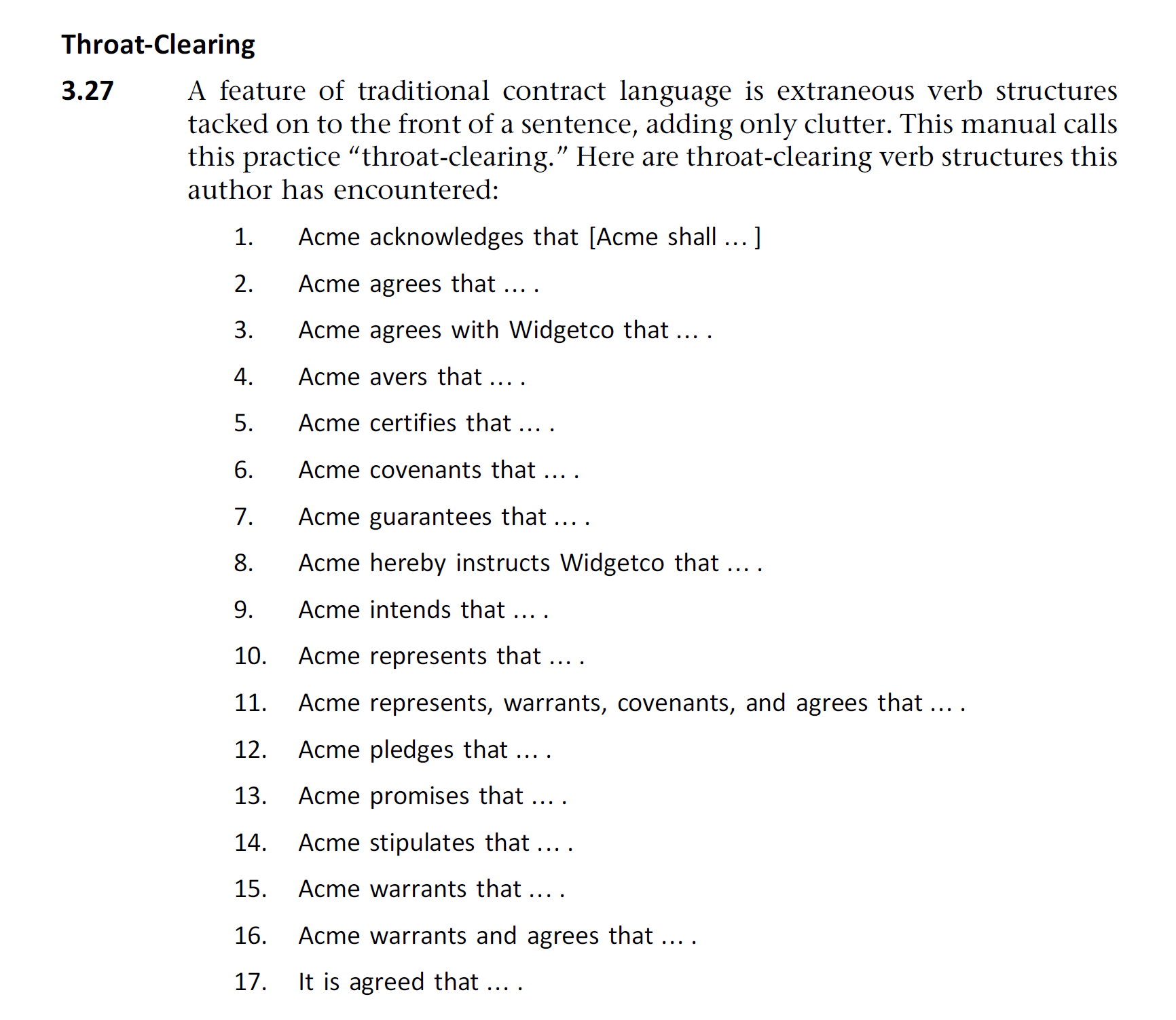Gaining control over your contract verb structures requires that you be familiar with “throat-clearing.”
What’s throat-clearing? It’s when a drafter sticks a redundant verb structure at the beginning of a sentence. As my gift to you, here’s part of the MSCD section on throat-clearing.

The reason for this post is that recently I realized you can have throat-clearing that uses abstract nouns instead of relying solely on verbs.
Here’s one example, with the throat-clearing (using the abstract noun intention) highlighted:

And here’s another that uses the abstract noun agreement:

It’s best to recognize the different forms of throat-clearing, so you can delete it from your drafts and from the other side’s drafts. Because it’s redundant, throat-clearing wastes time and brain cells. And it can also cause confusion. I say the heck with it.
(If you want more about throat-clearing, see this 2019 blog post and this 2020 blog post. And if you want to know why in my training I sporadically declaim, “Abstract nouns bad, verbs good!,” see this 2021 blog post.)

It was my impression that MSCD offers the use of “the parties intend that…” for cases in which it would otherwise appear as if they were instructing a court how to rule on a matter of law, e.g. an “independent contractor” clause. Have you changed your mind about that?
Hi Vance. There’s is indeed a role for language of intention. Namely when you’re dealing with a status that depends on the nature of the relationship between the parties. Or when you’re seeking to preempt judicial discretion, but politely. But if you use “the parties intend that” (or “it is the intention of the parties that”) as the semantic equivalent of “the parties agree that” at the front of a sentence, that’s throat-clearing.